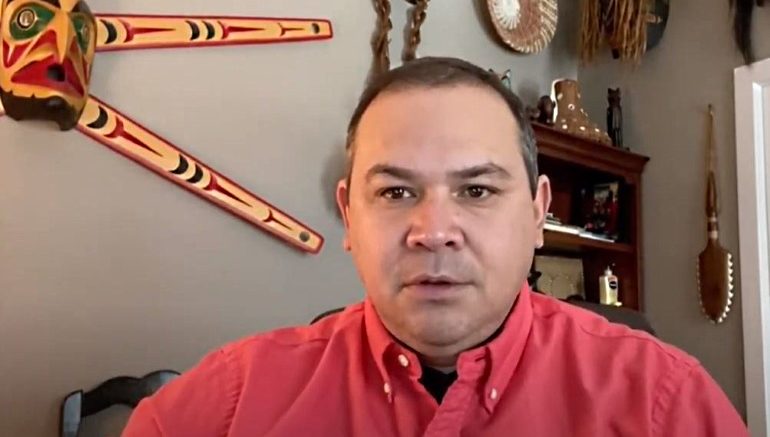By Jeremy Appel, Local Journalism Initiative Reporter
(ANNews) – Siksika Nation and the Blood Tribe are launching a court challenge of the Alberta government’s decision to lift its moratorium on coal mining on the eastern slopes of the Rocky Mountains earlier this year.
“The Rockies are treasured by everyone,” Chief Ouray Crowfoot explained in a July 4 statement from his First Nation, which initiated the application for judicial review.
“They’re the source of the water we all rely on, they support abundant fish and wildlife and precious natural areas. For Siksika, the Rockies are an important part of our traditional territory and are home to some of the last areas that can be used for Treaty hunting, fishing and our traditional way of life.”
According to JFK Law, which is representing Siksika in court, the Blood Tribe has joined the litigation.
This isn’t the first time these Treaty 7 First Nations have challenged the Alberta government’s decision to open up the eastern slopes to coal mining.
In May 2020, then-premier Jason Kenney repealed the 1976 coal policy, which prohibited coal mining in certain parts of the eastern slopes without consultation, which was challenged in court by the Siksika, Blood Tribe, Ermineskin Cree and Whitefish Lake bands, as well as a group of local ranchers.
Due to intense public backlash, the government backtracked in February 2021, reinstating the coal policy and establishing a coal committee to determine the best future course of action with public input.
In line with the committee’s recommendations, the government announced a moratorium on coal exploration on the eastern slopes in March 2022, with the exception of four projects that had applied for permits prior to May 2020, until local land-use planning can be conducted as part of a modernized coal policy.
In January, Energy Minister Brian Jean ordered the Alberta Energy Regulator to lift the moratorium, despite the new coal policy still being in the works, which the judicial review application notes was done without any input from Siksika Nation.
As a result of the government’s initial reversal, a consortium of coal companies launched a multi-billion-dollar lawsuit against the province, which Premier Danielle Smith has cited as a reason for lifting the moratorium.
On July 3, the day before Siksika and Blood Tribe announced their court challenge, the Alberta government reached an undisclosed settlement with two of the coal companies—Evolve Power and Atrum Coal.
Chief Crowfoot said that by lifting its moratorium, the government is ignoring its own coal policy committee’s recommendations, which were formed, in part, by the input of First Nations.
“We have tried to engage the Government of Alberta in good faith over the past several years on this issue. They made commitments to consult with First Nations in regional land use plans and other forums but they just don’t listen,” he said.
“Litigation was our only option at this point. Once coal mines are approved the damage will be done and it will be too late.”
After Jean lifted the moratorium, coal committee member Bill Trafford of the Livingstone Landowners Group told the CBC that the government had in effect decided “to throw [the committee’s recommendations] in the dumpster and go ahead with what the coal industry thinks they want to do.'”
The judicial review application notes that “extensive development authorized by the Crown,” including not just mining but municipal development, the establishment of conservation areas and tourism, “has eroded the lands and resources critical to Siksika’s practice of its Treaty rights and culture, leaving fewer and fewer areas that can sustain Siksika’s Treaty-protected way of life.”
For the past two decades, the First Nation “has provided Alberta with significant information and evidence” of these impacts, the application reads.
The South Saskatchewan Regional Plan and subregional Livingstone Porcupine Hills Land Footprint Management Plan both recognize the importance of the area to the exercise of First Nations Treaty rights and the importance of consulting with First Nations on any land use that would impede these rights, the application notes, but neither plan outlines restrictions on coal mining.
Alberta Native News reached out to Alberta Energy for comment on the First Nations’ lawsuit, but received a response from Indigenous Relations.
Acting press secretary Garrett Koehler said the government appreciates “how important it is for meaningful engagement and consultation with Indigenous communities on projects where Treaty rights, traditional uses and harvesting activities may be affected.”
“That is why we are implementing a modern, responsible coal policy that prioritizes environmental protection, water security and Indigenous consultation,” he added.
“Our approach includes the highest environmental standards, a ban on mountaintop removal and new open-pit mines in the Rockies, and a clear expectation that any future projects must meet strict conditions.”



I stand by Siksika!! This government needs to respect our nature. Shame on the people who tried to pass this thinking people couldn’t stop them.